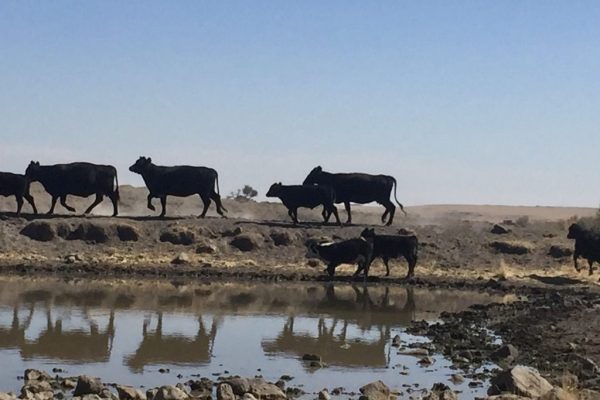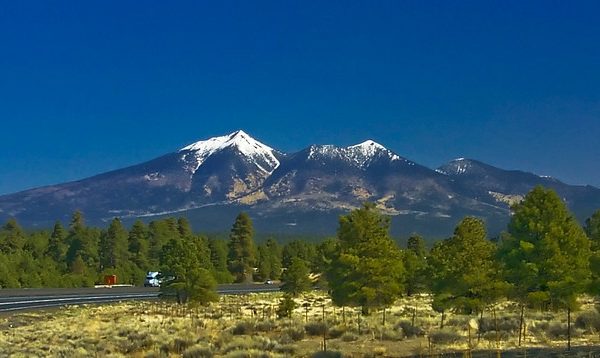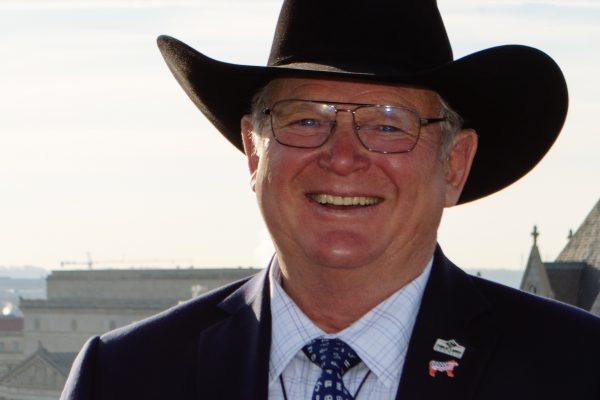Originally published in the Western Livestock Journal
To my fellow public lands ranchers –
In any typical year, you would be celebrating your new calf or lamb crop, having your first round of branding, or worrying about when it is going to rain. Instead, this year you are monitoring the markets and questioning what the industry will look like in the future. You have been asked to work harder and longer than the past, when most of us were already wondering how to put more hours in the day.
It is frightening to see how COVID-19 has affected our rural communities. Impacts to cattle and sheep producers are gut-wrenching, especially since most of us who live in very rural communities are treated like we live in a major city where the pandemic is running rampant. It’s a grim scene, but it’s important to remember you are not alone.
I know your struggle because I live it. I too am a rancher.
In challenging times in the past, we have gritted our teeth and carried on knowing we can “ride it out”. This is a different issue we are not accustomed to, and needless to say something we really don’t have any answers for. Rest assured that our concerns are being voiced and heard at the highest level of Government in Washington, DC thanks to our Public Lands Council (PLC) staff and officer team working countless hours in our behalf.
I currently serve as the president of the only national trade organization focused on issues affecting public lands and producers who contribute to land heath through grazing. We are committed to ensuring public lands ranchers have a voice amid the pandemic and that our industry can continue to work with confidence knowing we have people advocating for our interests.
PLC is guided by policy developed by ranchers who raise cattle and sheep across the Western United States. This policy provided guidelines for my fellow officers and I to use to direct our staff in Washington, D.C.
At the start of the crisis, we were able to secure assurances from Bureau of Land Management and Forest Service officials that grazing activities would continue as scheduled on public lands amid COVID-19. PLC worked with our state and national affiliates to focus on ensuring the supply chain remained running amid the pandemic, as we looked ahead to the ways COVID-19 could impact our livestock sales throughout the next several months.
As Congress looked for ways to support Americans through this crisis, we supported efforts to include cattle and sheep producers through new financial tools like the Paycheck Protection Program. Additionally, PLC sent a letter to the U.S. Department of Agriculture (USDA) and the Department of Health and Human Services outlining the unique challenges facing rural communities as they combat the impacts of COVID-19. This effort aimed to ensure the communities where we live and work are equipped and prepared for any healthcare needs.
PLC joined 43 other agriculture organizations in a letter to Congressional leadership thanking them for their role in assistance our producers and requesting further attention on a series of financial tools that required specific guidance for agriculture producers. We also joined a diverse coalition of industries to address funding concerns to USDA Wildlife Services. Together, we requested Congress increase funding to Wildlife Services to help bridge the gap of the loss of cooperator funding for this vital program through an appropriations package.
We are doing all of this and more. Time and again, PLC is called on to share priorities from public lands ranchers, and your messages are heard across Washington as a result.
All of this has been possible because of the working relationships established before this pandemic. For more than 50 years, PLC has brought together cattle and sheep producers who face unique challenges unlike other areas of the country. In crisis situations, the value of belonging to a national organization with a big voice like PLC is readily apparent, but I challenge you to continue your involvement after the crisis is over. It’s during the good times that the groundwork is set to safeguard public lands ranchers for the future. It becomes clearer to me every day that without having a voice for our grazing industries at the highest levels of government we could, and most probably, would not, be able to survive
We all look to the days when we can gather without restriction. When that time comes, I will look forward to seeing and meeting you all whether at state or national meetings. Together, we will continue to build a stronger future for our industry. Thank you for everything each of you do to support your country, families, communities, and this industry.
Bob Skinner
Jordan Valley, Ore.
Public Lands Council President





